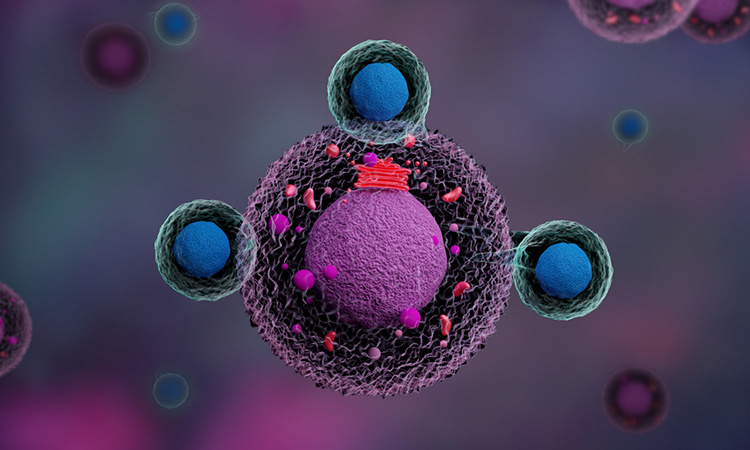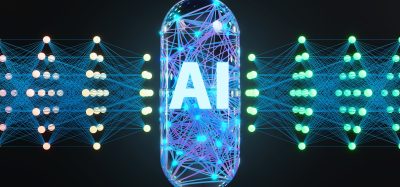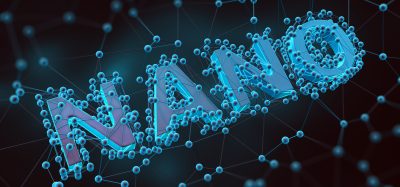Advancing CAR-T therapy: how CD5 modulation is shaping cancer treatment
Posted: 29 August 2024 | Marco Ruella (Vittoria Biotherapeutics), Nicholas Siciliano (Vittoria Biotherapeutics) | No comments yet
Vittoria Biotherapeutics is pioneering a novel form of CAR-T therapy for T-cell lymphoma using CRISPR gene editing. Here, co-founders Nicholas Siciliano and Marco Ruella explain how their approach promises to overcome tumour resistance, while also offering hope for new ways to treat solid cancers.


What potential advantages does the CD5 modulation strategy offer over traditional CAR-T therapies?
MR: Chimeric antigen receptor T-cell (CAR-T) therapy is very effective in treating patients with B-cell lymphoma, leukemia, and multiple myeloma, where we have six FDA-approved drugs. However, these treatments will eventually fail for the majority of patients, so there is a strong need for better CAR therapies. Our approach of CRISPR-Cas9 deletion (a gene-editing technology) of CD5 (a specific cluster expresses on the surface of T cells) gives the CAR T cell a higher activation and higher proliferation in vivo that leads to much stronger anti-tumour activity. We think that, over the traditional CAR product, a product that uses gene editing, using CRISPR gene knockout of CD5, would potentially lead to stronger anti-tumour effects in multiple cancer models. We’re starting with T-cell lymphoma – which is a step further compared to traditional CAR T cells that targets only B cell neoplasm – and then we are planning to expand this approach to solid cancers, where CAR-T therapy has not yet succeeded in leading to prolonged remissions.
How might the CD5 knockout approach impact the treatment of other types of cancers beyond T-cell lymphoma?
MR: We started by focusing on T-cell lymphoma because it is an orphan disease with very limited effective therapies, but, importantly, we think that CD5 deletion enhances any type of CAR T cell treatment. As a matter of fact, in the paper we show up to six different models of cancer using CAR T cell and TCR-edited T cells. In all the models we show that, even in solid cancers, CD5-deleted CARs have a better anti-tumour effect. We think that the key point is that CD5 enhances CAR T-cell activation and function even within the immunosuppressive tumour microenvironment, which means this approach is going to be particularly important for cancers such as solid cancer where the immune microenvironment is terribly toxic to the CAR T cells. We are planning on expanding this approach from T-cell lymphoma to solid cancers and potentially other types of haematological cancers where we do not have a CAR product approved; for example, adult acute myeloid leukemia (AML).
How is Vittoria Biotherapeutics leveraging the findings about CD5 to develop their lead program, VIPER-101, for T-cell lymphoma?
NS: Vittoria Biotherapeutics is pioneering the application of CD5 modulation through its Senza5TM platform to enhance CAR T-cell therapies, exemplified by our lead program, VIPER-101. By simultaneously deleting CD5 and expressing a CD5-targeting CAR into engineered patient T cells, VIPER-101 offers a novel approach for treating T-cell lymphoma. This program uses our proprietary Senza5 technology to remove CD5 from the surfaces of engineered T cells, significantly enhancing the cytotoxic activity of engineered CAR T cells that target this same antigen on tumours, thus preventing T-cell fratricide while conferring enhanced effector function. The result is a therapy that addresses the aggressive nature of T-cell lymphoma with both improved potency and a unique safety feature. This approach has the potential to be transformative for T-cell lymphoma patients, as they currently face limited treatment options with only modest response rates.
Biomarkers aren’t just supporting drug discovery – they’re driving it
FREE market report
From smarter trials to faster insights, this report unpacks the science, strategy and real-world impact behind the next generation of precision therapies.
What you’ll unlock:
- How biomarkers are guiding dose selection and early efficacy decisions in complex trials
- Why multi-omics, liquid biopsy and digital tools are redefining the discovery process
- What makes lab data regulatory-ready and why alignment matters from day one
Explore how biomarkers are shaping early drug development
Access the full report – it’s free!
Can you explain the key features and benefits of the Senza5 platform developed by Vittoria Biotherapeutics?
NS: The Senza5 platform, developed by our team, represents a significant advancement in CAR-T therapy. It integrates gene editing to remove the CD5 molecule from engineered T cells and a rapid five-day manufacturing process that synergises to enhance effector function and preserve cellular ‘stemness’, essential for long-term efficacy and durability in patients. This platform not only increases the potency of CAR-T therapies, but also reduces potential risks, making treatments safer and more effective for a broader range of cancers, including solid tumours.
What future developments and innovations can be expected from Vittoria Biotherapeutics in the field of CAR-T therapies?
NS: Looking ahead, Vittoria is committed to expanding the frontier of CAR-T therapies. We are continuously exploring ways to enhance our Senza5 platform, focusing on increasing target antigen diversity and improving the scalability of our manufacturing processes. Future innovations will likely include developing solid-tumour-directed CAR-T therapies and augmenting the lymphodepletion process. Additionally, we aim to extend our technologies to tackle other challenging conditions, like autoimmune diseases, providing patients with more effective, potentially curative treatment options for chronic diseases.
About the authors
Nicholas Siciliano, PhD, CEO and co-founder of Vittoria Biotherapeutics


Dr Siciliano has extensive experience launching new biotechnology companies in the Greater Philadelphia Region and contributed to the early development and initial funding of various diagnostic and therapeutic ventures. He also serves as an Entrepreneur in Residence at Agent Capital and as an investment advisor for both Tellus BioVentures and Valley Forge Investment Corporation.
Dr Siciliano received a BS in chemistry from Villanova University and shortly thereafter began his scientific career in the Department of Microbiology at the University of Pennsylvania Medical School studying host-pathogen interactions. He then earned a PhD in immunology and microbial pathogenesis from Thomas Jefferson University where he studied antigen presentation.
Dr Siciliano currently serves on the Board of NexEOS Bio, a privately held medical diagnostics and therapeutics company, and serves as a Strategic Consultant for bioMerieux. He is also the president of the College of Sciences Alumni Board at Thomas Jefferson University. He holds multiple utility and design patents for scientific technologies and has authored various peer-reviewed manuscripts in the fields of bacteriology, virology, immunology, molecular biology, and cancer immunotherapy.
Marco Ruella, MD, Scientific co-founder of Vittoria Biotherapeutics and Assistant Professor of Medicine in the Perelman School of Medicine at the University of Pennsylvania


His research focuses on the study of the mechanisms of relapse after chimeric antigen receptor T-cell (CART) immunotherapies with the goal of rationally designing combined innovative immunotherapies for relapsing/refractory leukemia and lymphoma. He is the author of numerous peer-reviewed publications on targeted immunotherapies for haematological cancers and is an inventor in several patents on CAR-T therapy.
His work has been recognised through numerous awards including the inaugural SITC EMD-Serono Cancer Immunotherapy Clinical Fellowship (2014), the AACR-BMS Oncology Fellowship in Clinical Cancer Research (2015), the ASH Scholar Award (2016), a NIH K99-R00 award (2017), the “Paola Campese” Award Leukemia Research (2017), the Cancer Support Community Award (2018), and most recently the 2018 American Society of Hematology Joanne Levy, MD, Memorial Award for Outstanding Achievement.
Dr Ruella obtained his medical degree with high honours and completed his specialisation in clinical haematology at the University of Torino, Italy. After completing his fellowship, he was an attending physician in the Hematology and Cell Therapy Division of the Mauriziano Hospital and an Instructor at the Biotechnology School at the University of Torino. From 2012, he was a postdoctoral fellow, and then an instructor at the University of Pennsylvania in the Center for Cellular Immunotherapies where he worked with Drs June and Gill until appointment to his current position in 2018.
Related topics
Cancer research, Cell Therapy, Oncology, Targets, Therapeutics
Related conditions
Cancer
Related organisations
Vittoria Biotherapeutics








